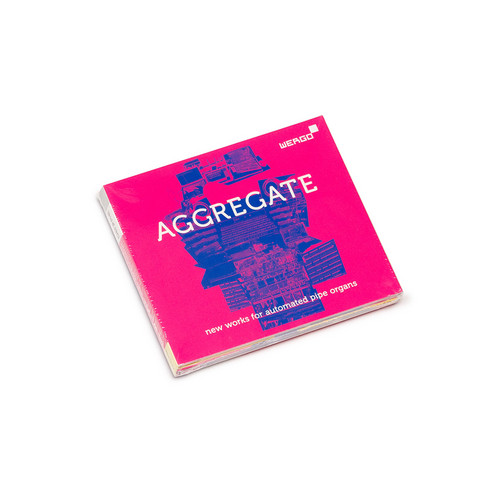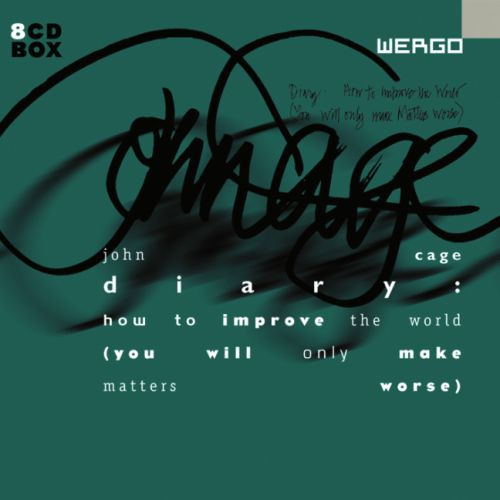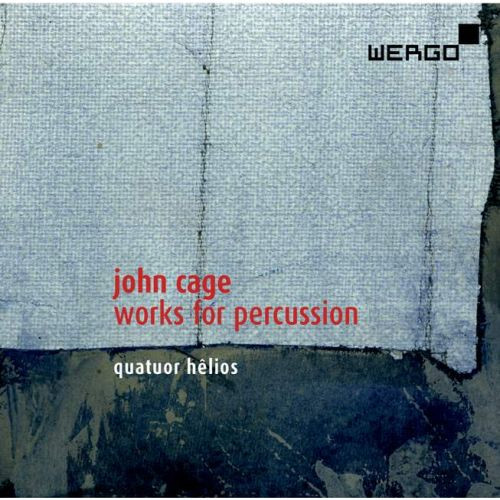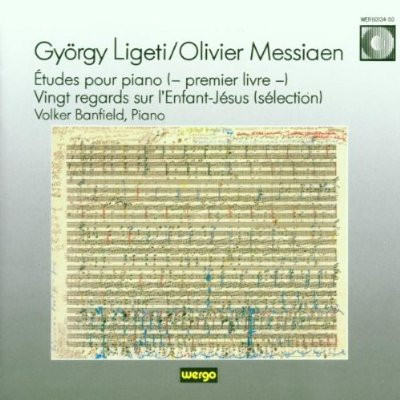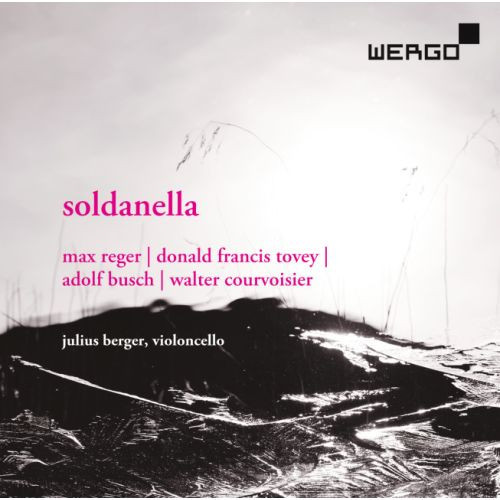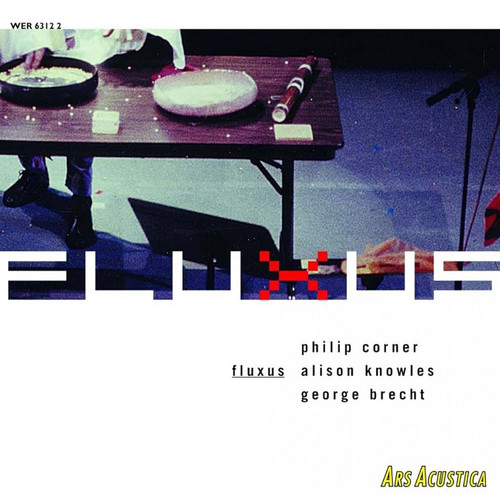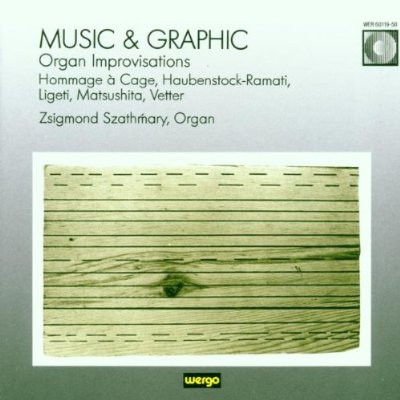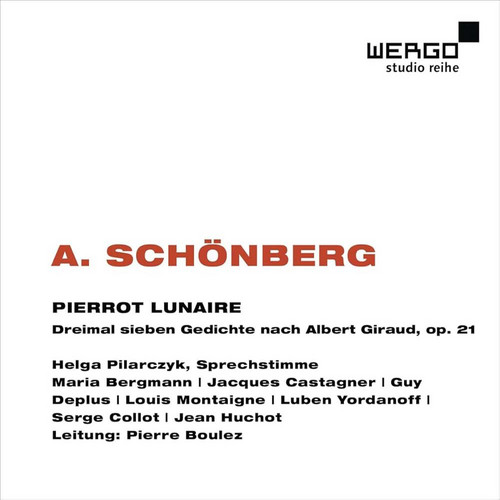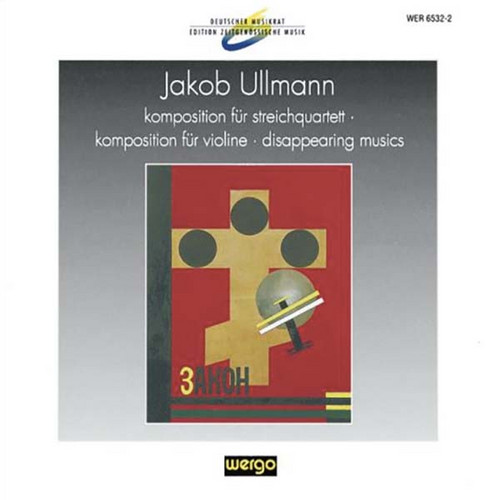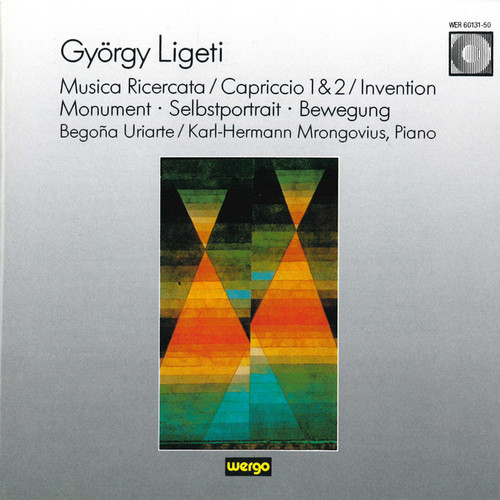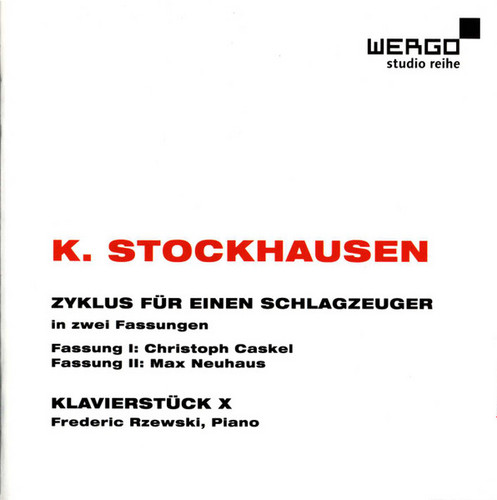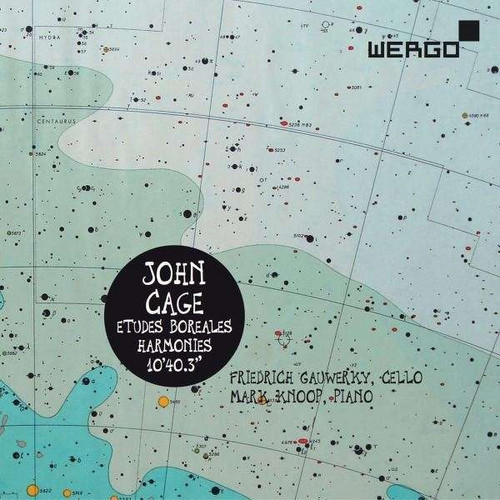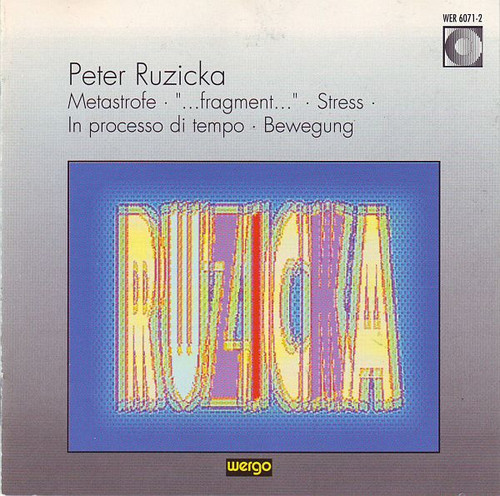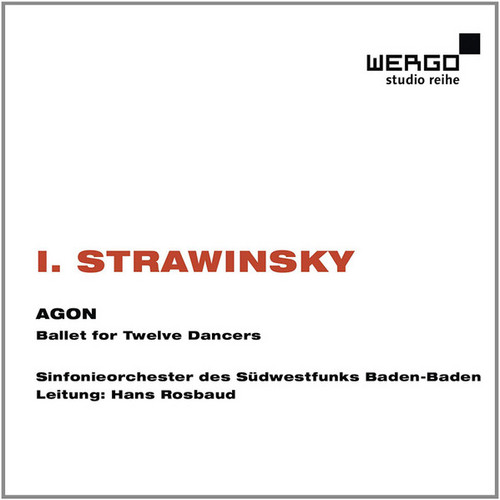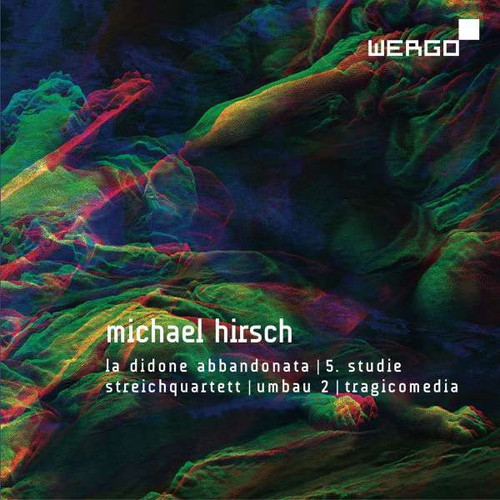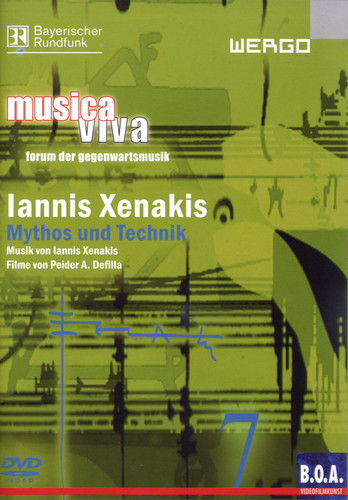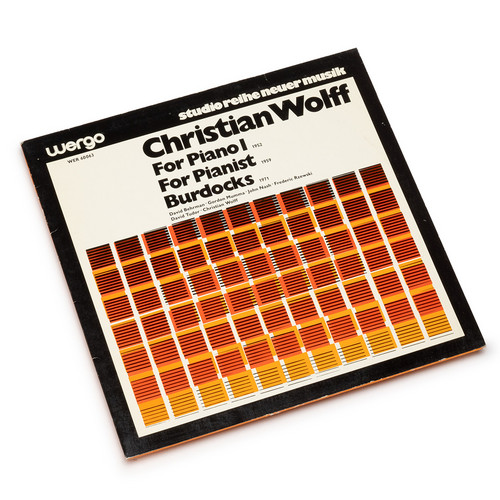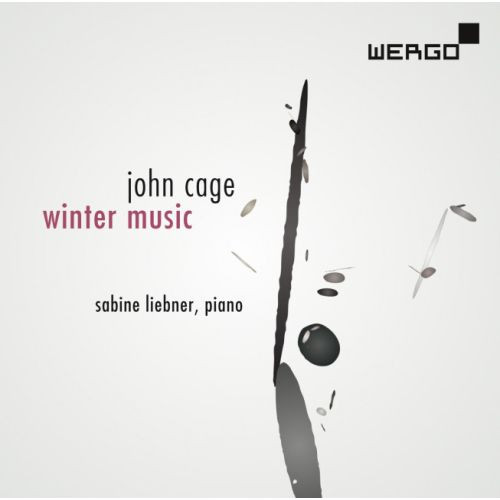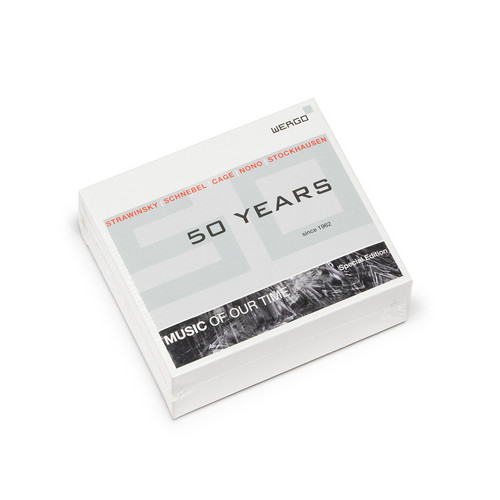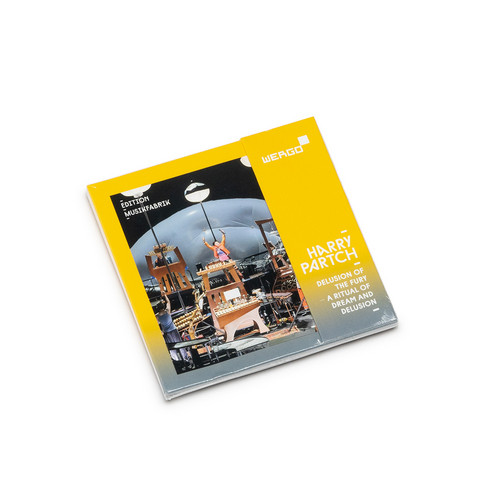★Wergo
Aggregate New Works for Automated Pipe Organs
Maciej Śledziecki and Marion Wörle show just how exciting the world of the pipe organ is today as the ensemble gamut inc. The retro-futuristic duo uses self-programmed software to dock onto the MIDI consoles of church organs, control their stops in a manually impossible way and perform sound synthesis with surprising results. Their annual AGGREGATE festival in Berlin is a meeting place for the international “New Organ Movement” scene: electronic musicians, composers and organists from different …
Diary: How To Improve The World (You Will Only Make Matters Worse)
2025 stock The acoustic publication of this "Diary" by and with John Cage represents an impressive document, spoken by an extraordinary voice, produced by one of the great artists of the 20th century. The new design of the 8-CD set includes a 64-page booklet in a presentation box (digi-box, carton). The booklet contains several photographs taken in John Cage's loft and during the recording in 1991.
“I began the Diary optimistically in 1965 to celebrate the work of R. Buckminster Fuller, his con…
Études Pour Piano (- Premier Livre -) / Vingt Regards Sur L'Enfant-Jésus (Sélection)
2025 stock The significance of the seven pieces brought together here is that they both generate a striking panorama of the intelligence of the material presented, over a period of four years, from 1939 to 1943, by the composer whom the critic Fred Goldbeck described as “the greatest Giraudouxian of our age”, and clarify in an extraordinarily oblique manner the prehistory of this “automation” of the creative act, towards which one can detect the perpetual temptation in the young Cage.
Études Pour Piano (- Premier Livre -) / Vingt Regards Sur L'Enfant-Jésus (Sélection)
2025 stock In 1985 György Ligeti created six piano studies. The exceptionally new of these studies is the possibility of having one player generate the vision of several different simultaneous tempo layers. The extremely high level of difficulty of these studies demands the pianist's utmost virtuosity. With Volker Banfield, Ligeti found the right pianist for his studies. The fourth study, 'Fanfares', is dedicated to Banfield. Olivier Messiaen's 'Vingt regards sur l'Enfant-Jésus', too, makes hug…
Soldanella - Works For Violoncello Solo
2025 stock When Pablo Casals rediscovered the cello suites of Bach at the beginning of the 20th century and firmly established them in the concert and record repertoire, the novel thing about it was that he played them "senza basso", i.e. without piano accompaniment - something that seemed quite unimaginable in the 19th century. In a time of music-historical over-maturity and experimentation, renowned composers soon came up with their own attempts, among them most famously Max Reger's "Solo Suit…
Fluxus
2025 stock Three rather meditative pieces from the repertoire of "Ars Acustica", but nevertheless: Fluxus! The New York-born artists whose radio plays are collected on this CD, Philip Corner, Alison Knowles, and George Brecht, have appeared together in performances, and they are also connected by their relationship to John Cage's aesthetic, by work with chance operations, and by Zen. Explaining Fluxus is like wanting to hold a river in your hand.
Music & Graphic / Organ Improvisations
2025 stock Are we now in a position to experience within ourselves every kind of music as a harmonious system? In this case there would be only one music existing independent of the composer and the notation. Is it then the case, that the responsibility for the music has not only been shifted from the composer to the performer, but even further to the listener? The person who listens to this record will have to decide.
Zsigmond Szathmáry: organ
Pierrot lunaire Dreimal sieben Gedichte aus Albert Girauds „Pierrot lunaire“ (Melodramen), op. 21
2025 stock WERGO's unique "studio reihe" series continues with a rather special CD release:
The present recording of Arnold Schoenberg's "Pierrot lunaire" was the first long-playing record released by the newly founded label WERGO in 1962, which laid the foundation of the label's decades-long story of success. This important recording –with the soprano Helga Pilarczyk and under the direction of Pierre Boulez – has not been available on CD up to now. Now the label releases this highlight from its…
Komposition Für Streichquartett / Komposition Für Violine / Disappearing Musics
2025 stock Jakob Ullmann's career can be measured by the obstacles placed in his path. It was in the teeth of these obstacles that he learnt his craft: they have left their mark on his artistic stance, and the fact that he ultimately overcame them proved the rightness of his approach. For a number of reasons, Ullmann's works failed to blend into the musical landscape of the former state of East Germany. Avoiding peremptory gestures and unalterable laws, his restrained scores seemed strange and a…
Musica Ricercata / Capriccio 1&2 / Invention / Monument · Selbstportrait · Bewegung
2025 stock "Musica Ricercata" of 1951-53 is a collection of 11 piano pieces which even with their traditional character went beyond what was considered appropriate for performance in Hungary in the early 1950s. The tenth piece, e.g., was considered too "decadent" because of the abundance of minor seconds. The short "Capriccios" and "Invention", written in 1947-48, reveal convincingly the emergence of Ligeti's musical identity. "Monument · Selbstportrait · Bewegung" (three pieces for two pianos) …
Zyklus Für Einen Schlagzeuger In Zwei Fassungen / Klavierstück X
2025 stock Under the title of “studio reihe neuer musik”, WERGO released outstanding recordings in the 1960s, thus creating a trademark of advanced contemporary music in the label's early days. On the occasion of its 50th anniversary, WERGO now releases these highlights of 20th-century music history in an excellent sound quality on CD for the first time.“studio reihe” now continues with works by Karlheinz Stockhausen:On this CD, “Zyklus für einen Schlagzeuger” [“Cycle for One Percussionist”] can…
Etudes Boreales / Harmonies / 10'40.3"
2025 stock Enormous technical requirements make John Cage's "Etudes Boreales" a highly virtuosic work, which requires an extreme sensitivity of feeling for the coordination of fingers, instrument, and intellect. On this CD it is presented in versions: for piano solo and later for cello solo with piano solo. As in the sister works, "Etudes Australes" and "Freeman Etudes", Cage based the "Etudes Boreales" on a star chart. He used the chart of the northern sky that the Czech astronomer Antonín Bečv…
Metastrofe / Fragment / Stress / In Processo Di Tempo / Bewegung
2025 stock Radio-Symphonie-Orchester Berlin / Michael Gielen: conductor / Westphal Quartett / Percussionensemble Siegfried Fink / Claus Kanngießer: cello / Radio-Symphonie-Orchester Berlin / Peter Ruzicka: conductor
Agon, Ballet For Twelve Dancers
2025 stock With “studio reihe neuer musik”, WERGO created a trademark of advanced contemporary music in the Sixties of the past century already. On the occasion of its 50th anniversary, WERGO now releases these highlights of 20th-century music history in an excellent sound quality on CD for the first time.
“studio reihe” now continues with a work by Igor Stravinsky:
Stravinsky's last ballet composition “Agon. Ballet for Twelve Dancers” was written over a period of three years (1954–1957). During…
La Didone Abbandonata I 5. Studie I Streichquartett I Umbau 2 I Tragicomedia
2012 release ** "Michael Hirsch began to work as a composer in 1976, with occasional interruptions for theatre engagements. In addition to instrumental music and music theatre, the genre of musique concrète is an important part of his compositional oeuvre as is illustrated impressively by the works recorded on this CD. “La Didone abbandonata” is based on the opera seria text of the same name by Pietro Metastasio from 1724. For his version Hirsch reduced the number of the dramatis personae to the…
Iannis Xenakis - Mythos und Technik
*2025 stock**Bilingual Edition English and German* In the films of this DVD, Peider A Defilla provides an insight into the oeuvre of Iannis Xenakis. The films show musica-viva performances of the works ’Syrmos’, ’Synaphai’, ’Theraps’, and ’Nekula’, and the respective BR-alpha broadcasts on these compositions. In an exclusive interview, the composer Iannis Xenakis is asked about his compositional oeuvre. In addition, the data section of the DVD contains further information on Iannis Xenakis, the …
For Piano I / For Pianist / Burdocks (LP)
Original 1972 LP of Christian Wolff's seminal chance compositions featuring David Tudor, David Behrman, Gordon Mumma, etc. on Wergo’s legendary Studio Reihe Neuer Musik series. Complete with insert.
Winter Music
John Cage's importance for a comprehensive aesthetic reorientation of New Music after the Second World War can hardly be overestimated. His self-discovery and compositional articulation took place particularly in the field of piano music: in the art-merging experimental laboratory of New York around the dancer Merce Cunningham, the painter Robert Rauschenberg and the congenial performer and pianist David Tudor.
It is good fortune that Sabine Liebner, who has already released several internationa…
50 Years
In 2012, the Wergo label celebrates its 50th anniversary. For half a century, Wergo has been synonymous with contemporary music. The label's catalog reads like a virtual who's-who of modern music, both in terms of composers and performers. From the beginning, the intent of founder Werner Goldschmidt (from whom the label derives its name) was to provide listeners with a snapshot of current musical activity and innovation. Goldschmidt's label and mission, now managed by the publisher Schott, is ma…
Delusion Of The Fury
“It was only with Partch that a music began to take shape that could do equal justice to the physical desire for rhythmic pulse and a curiosity for new, unheard sounds; a music that enthralls us despite, or rather, precisely because of its unfamiliarity. A music for which we have no category, and which has no location, and yet in a strange way is grounded.” – Heiner Goebbels
The American composer Harry Partch (1901-1974) is considered a pioneer of the Just Intonation movement and was far ahead o…
